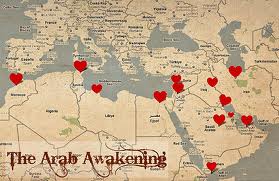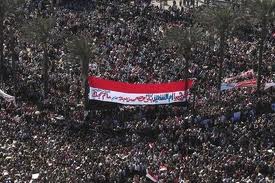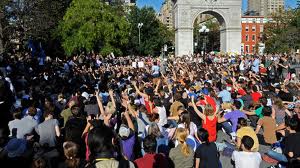Mahatma Gandhi has been dead for more than 63 years, and yet his relevance to the politics of our time has never been greater. It is a tribute to the power of Gandhi’s inspirational ideas and life that his current influence is far greater than that of any other leader of the past century. We recall such names as Churchill, Franklin Roosevelt, Mao Tse-tung, Lenin, and Nehru as individuals who were great leaders in their time and remain historic personages of lasting importance, but they do not speak directly to the political circumstances of the 21st century. Those seeking to challenge what is exploitative, destructive, humiliating, corrupt, and oppressive in their surroundings are mostly indifferent to or even ignorant of these agents of past history. By contrast, Gandhi remains a towering figure that seems as fascinating as when he had become on that dismal day in 1948 when he died at the hands of a Hindu nationalist assassin.
Beyond this legacy is the claim that we are actually living through ‘a Gandhian moment.’ Some have invoked such an image to identify any sustained political challenge directed at the established order that is self-consciouslessly premised upon principles of nonviolence. For instance, a distinguished Gandhi scholar, Ramin Jahanbegloo, entitles a short essay on Iran’s Green Revolution ‘The Gandhian Moment,’ and treats these courageous massive uprisings in Iran that followed upon the apparently stolen election of June 12, 2009 as an example of an historic event illustrative of Gandhi’s contemporary impact, so much so that he honors the events by affixing the label ‘a Gandhian moment.’ He also believes that a series of other national leaders espousing nonviolent politics have contributed their own variant of a Gandhian moment: Khan Abdul Ghaffar Khan, Martin Luther King, Jr., Nelson Mandela, Lech Walesa, Vaclav Havel, Benigno Aquino, Aung San Suu Kyi, and Ibrahim Rugova. These are all admirable individuals who bravely fought against an oppressive established order, yet I find it dilutes and somewhat misinterprets the Gandhian legacy to bestow upon their activities the Gandhian imprimatur. Or explaining my reaction differently, the espousal of nonviolent politics is a necessary but far from sufficient reason for christening a momentous political occasion as a Gandhian moment.
Without taking issue with Jahanbegloo’s list, I would note that several of those included were practitioners of tactical nonviolence without ever articulating an unconditional commitment of the sort that Gandhi made the signature of his life and theory. As far as I know Mandela never recanted his support for armed resistance to the apartheid regime in South Africa on the part of the ANC. Aquino although a determined democrat, failed to build a popular movement around nonviolent politics, although his widow, Cory Aquino led the people power movement that overthrew the Marcos regime in 1986, but again without any indication of being guided by such an unconditional framework as Gandhi insisted upon. And Rogova, although supporting an imaginative nonviolent resistance to oppressive Serbian governance of Kosovo, nevertheless welcomed the NATO intervention of 1999, and even had an autographed picture of Madeline Albright on his office wall. In effect, Jahanbegloo’s list mixes different degrees of nonviolent commitment without clarifying the originality of Gandhi’s mandatory framing of nonviolence in absolutist terms. This framing led to some awkwardness of response on Gandhi’s part as when he counseled German Jews to stay put in the face of Nazi persecution or advised the liberal democracies to dissuade Hitler from aggression by unilaterally disarming or urged civilians to confront the pilot of the planes dropping atomic bombs on Japanese cities with a sacrificial resignation of peacefulness and non-hostility. I mention these examples not to criticize Gandhi, but to clarify the extremity of his views on nonviolence that allowed no room for exceptions, no matter how extenuating the circumstances. From this perspective I am not comfortable with calling the Green movement in Iran, which had rather modest reformist goals even at its height, ‘a Gandhian Moment.’
And yet, I would argue that we are living through a Gandhian Moment in two quite different respects that relates to my understanding of the originality of Gandhi’s ethics, politics, and underlying spirituality. I find the two most significant features of a distinctively Gandhian approach to be his linkage of nonviolence with living in truth (satyagraha) that imparts its unconditional character and his dedication to what I call ‘the politics of impossibility,’ that is, dedication to goals that are beyond the limits of the feasible as conventionally understood. This was the case for Gandhi when he challenged British imperial rule in India after World War I, and it was even more characteristic of his unfulfilled philosophical anarchist vision for India. His proclaimed ideal India was a country of self-reliant villages with minimal state institutions and a turn away from the corrupting lures of modernity. Even many of Gandhi’s closest associates, including the great Jawaharlal Nehru, opted for a politics of possibility once Indian independence was achieved, seeking to make India a normal state. This normalcy culminated in the acquisition of nuclear weapons by India in 1998, a move that would have certainly horrified Gandhi.
Why, then, claim we are in the midst of a Gandhian moment? First of all, because the various movements and uprisings associated with and stimulated by the Arab Awakening were rooted in their spontaneous commitment to a politics of impossibility coupled with an explicit and courageous dedication to nonviolent confrontation. This was especially true in Tunisia and Egypt, where although the trajectory remains radically uncertain, what has been achieved already qualifies as the attainment of ‘the impossible.’ A few months ago in Cairo when talking to activists who had been in Tahrir Square I was struck by their uniform commentary of what an extraordinary experience it had been to participate in a process that had been unimaginable before Mubarak’s remarkable departure from power took place before their eyes.
If the #OccupyWallStreet protests, now a presence in 70 American cities, succeed in producing a transformative movement, it would reinforce this reality of a global Gandhian Moment even if the name Gandhi never appears in the manifestos issued by the convenors. I want to suggest that a Gandhian Moment occurs whenever the inner affinities with the essential Gandhian legacy seem pronounced, and not necessarily when the influence of the man and his achievements is overtly acknowledged.
There is a second reason why I think it useful to identify our time as a Gandhian Moment. It is our inability to address any of the most pressing global challenges effectively and humanely without a dual reliance on a politics of impossibility and an unconditional commitment to nonviolence.
Among these challenges, I would mention the following: global climate change; nuclear disarmament; a sustainable and just Palestine/Israeli peace; water scarcities; transition to a post-petroleum economy; an equitable and stable world economy; extreme poverty; and global democracy. Each of these challenges is overwhelming, and in their aggregate, presages a catastrophic future for the human species. Yet we cannot know the future, and need to keep our spirits high by embracing appropriate transnational, global, regional, local, and even personal forms of an empowering politics of impossibility. Whether in such a setting a new Gandhi will emerge is almost irrelevant to the claim that to be alive now is to enjoy the potential of experiencing the vibrant rhythms of a Gandhian Moment!







Dear Richard,
the word “Gandhian Moment” for our times I think is well placed.
I do hope very very much that the peoples’ voice will be heard and yes, this could show a real Ghandhian Moment when people move and demand their rights.
The rights of law, freedom, no warfare, and a government who is taking really care of their own people and country instead of making its country poor and a handful companies rich by warfare.
I do hope that in Europe more people would protest on streets.
On the European Continent up til now no real stream, movement is to me visible. Only in Germany the protests against nuclear power plants were successful I would say. The government took the wish of its people earnest, so it will take some time untiul the last power plant will be closed. But without the protests nothing would have been done however, also supportive was the desaster in Japan which showed clearly what could happen.
The Greece protesters showed some violence I think, but Greece has real problems with some reforms to be done quickly.
In Britain the protests have been forbidden to my knowledge; a very bad sign especially as Britain is one of those countries where freedom of speech has been implemented for a long, long time.
The “new Ghandhi” could have been President Barack Obama – but unfortunately he didn’t see his great possibilities. Maybe he had fear to be assassinated like JFK. Who knows?
With the Internet information is spread very quickly and young people are therefore much more informed than ten, fifteen years ago,
This gives hope for the future.
monalisa
Dear Professor Falk:
I would point you to a very Gandhian approach to both politics and economics in a book published this year in England by Chandran Nair; “Consumernomics—Asia’s role in reshaping capitalism and saving the planet” ISBN 9781906821494. There was a review in Asia Times Online back in the summer.
Poverty, climate degradation, and resource depletion can be tackled by Asian countries with a kind of Gandhian assault on neo-liberalism and market fundamentalism.
Christopher Hoare.
I love your optimism!
This is such an uplifting and inspirational article, thank you Richard. I would be interested in hearing your thoughts on the murder of Gadaffi. You are probably writing right now.
How did you know!! Thanks..
Richard, I quoted from this article of yours in my new article on Fukushima and Okinawa. Please see:
Fukushima and Okinawa – the “Abandoned People,” and Civic Empowerment
http://peacephilosophy.blogspot.com/2011/11/fukushima-and-okinawa-abandoned-people.html
Definitely agree with some of them. Good blog man, I really love your writing style that you are using for your posts and stuff. Thanks!!
Aw, this was a very good post. Taking the time and actual effort to create a superb article… but what can I say… I put things off a whole lot and never manage to get anything done.
I’m more than happy to uncover this great site. I want to to thank you for ones time just for this fantastic read!! I definitely enjoyed every bit of it and I have you saved to fav to check out new information in your web site.